DQ Helpline
Why is whistleblowing system necessary?
What is whistleblowing?
Whistleblowing system is a system designed to allow employees or other members to report or consult either anonymously or using their real names with an internal unit or a third party regarding illegal acts, regulatory violations, or various types of fraudulent or problematic conduct taking place within their company or organization.
To detect the signs of fraud in the early stages and minimize damage before complaints begin to appear on outlets such as social media, you must quickly and extensively gather information (clues) related to fraud in the workplace by using special mechanisms such as a whistleblowing system.
Whistleblowing system is the #1 tool for detecting fraud
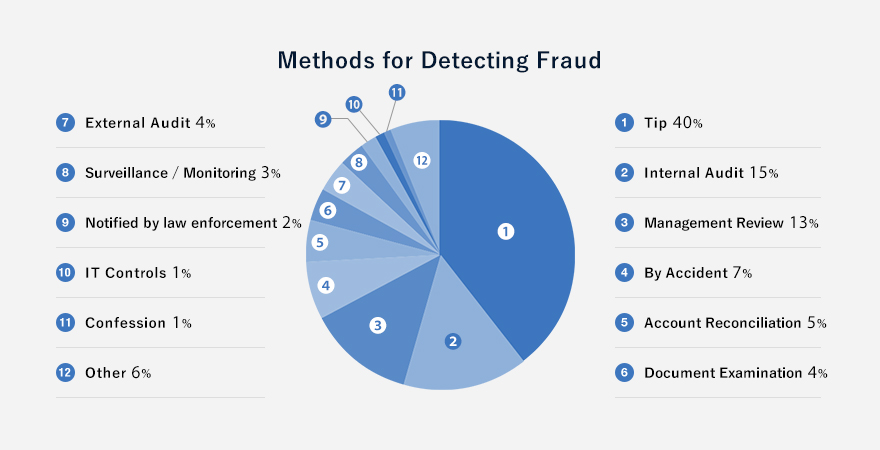
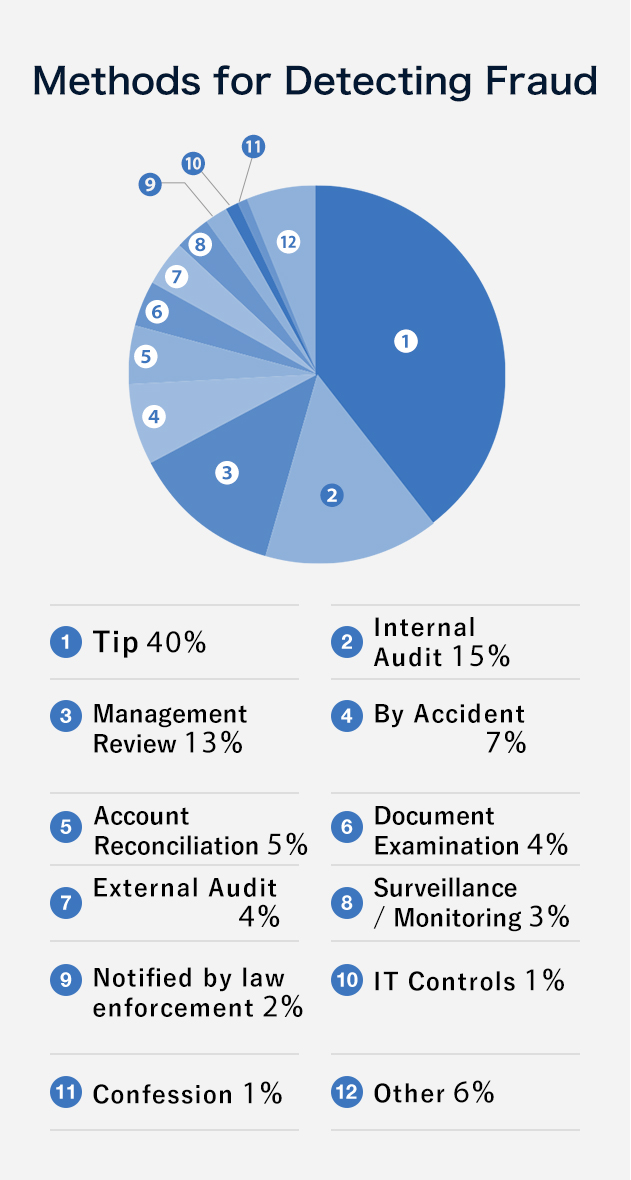
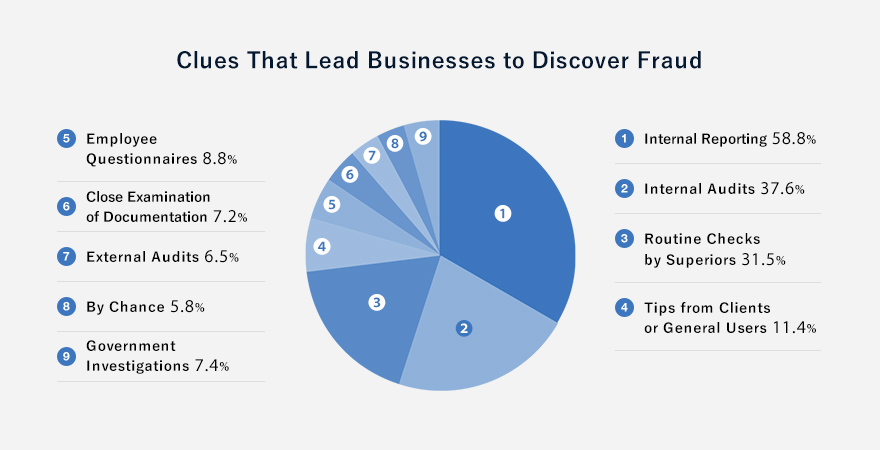
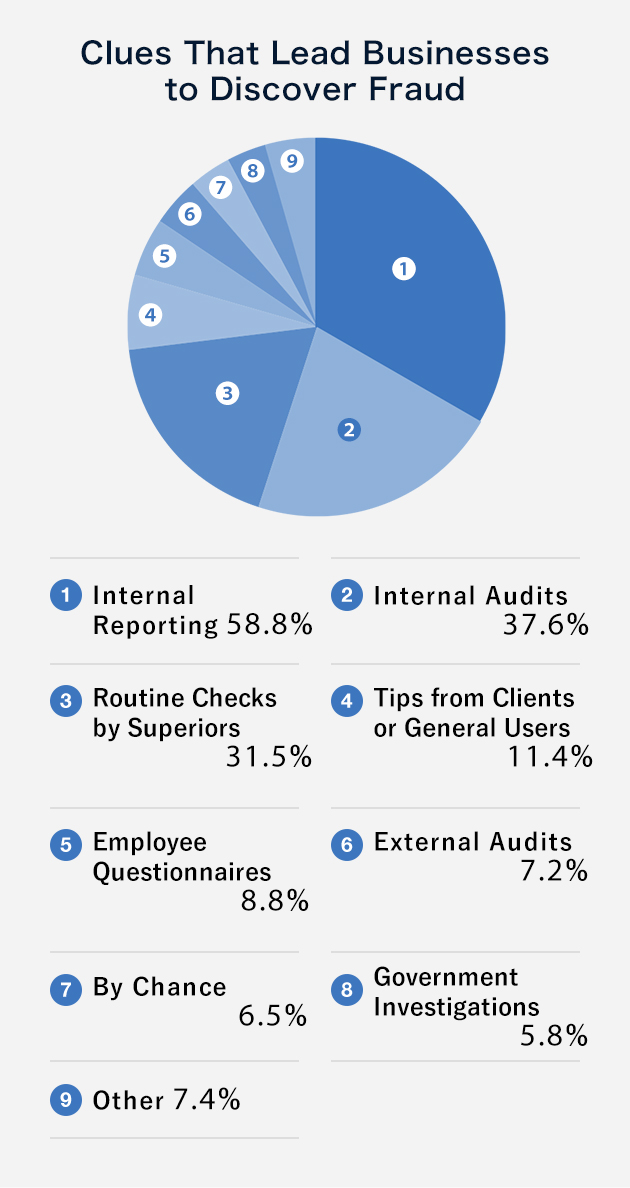
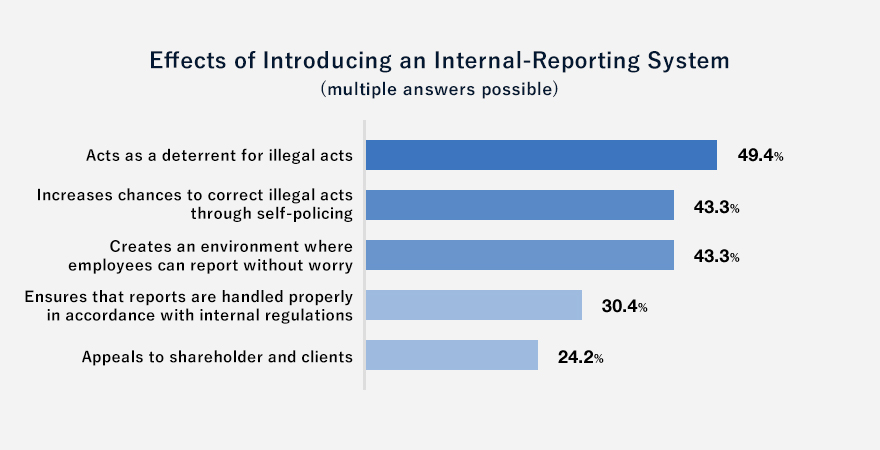
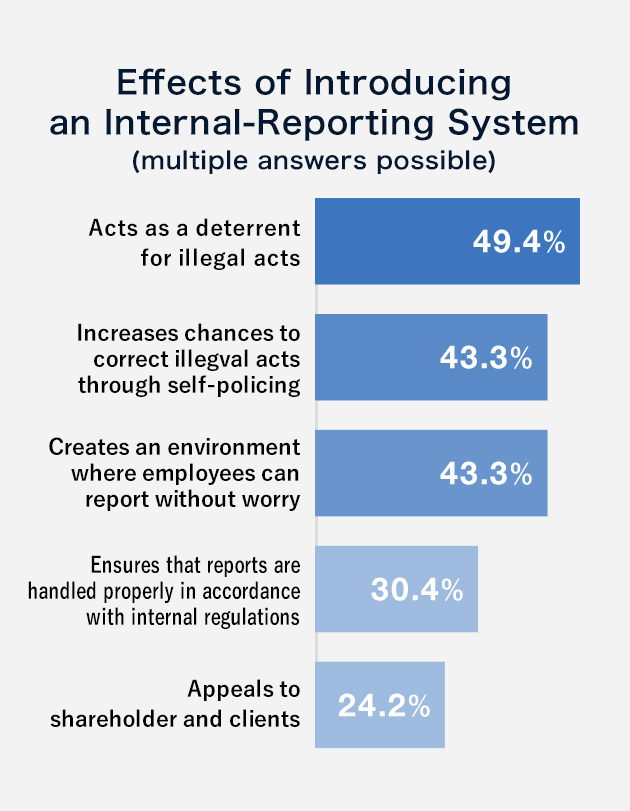
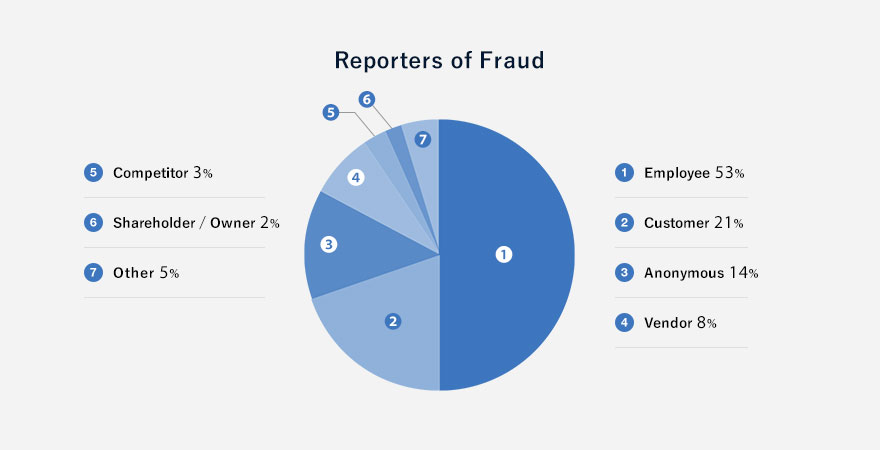
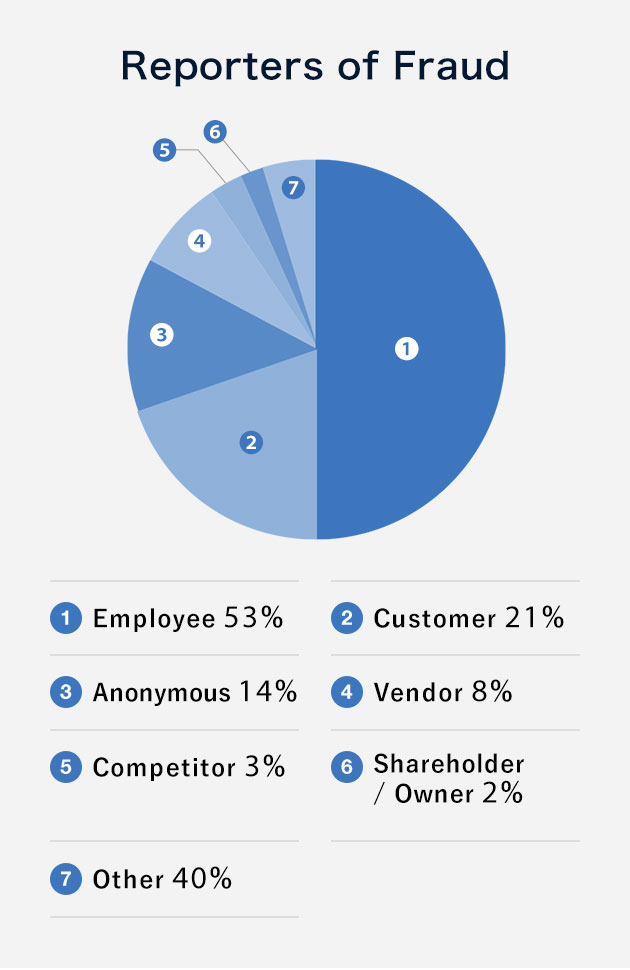
Revised guidelines from the Consumer Affairs Agency

To ensure that employees who report illegal acts done by their companies are not treated unfavorably, such as being dismissed or demoted, Japan enacted the Whistleblower Protection Act in 2006. To comply with that legislation, many businesses have already introduced whistleblowing systems, particularly the major companies.
But even with a whistleblowing system in place, employees hesitate to provide their companies with information due to fears that they will be treated unfavorably for reporting fraud. As a result, occupational fraud can go neglected and worsen or progress without the company being aware of it. By the time it is discovered, it is too late.
Based on field studies conducted after the Whistleblower Protection Act went into effect, the guidelines* for private businesses were revised in 2016 to make whistleblowing systems more effective.
(* Private-business guidelines for the creation and operation of whistleblowing systems based on the Whistleblower Protection Act)
The guidelines were revised primarily from the following points of view:
Creating an environment where people can report without worry
- Maintaining complete confidentiality throughout the reporting process
- Totally prohibiting the unfavorable treatment of reporters
- Reducing the disciplinary measures taken against people who report voluntarily
Clarifying the responsibilities of management staff with regard to the creation and operation of whistleblowing systems
- Specifying the role of management staff
- Creating reporting avenues that are independent of management staff
- Ensuring that all employees know of and understand the reporting system
- Continuously evaluating and improving whistleblowing systems
The effectiveness of a whistleblowing system indicates the health of a company
DQ Helpline is an anonymous and interactive third-party reporting system

Most whistleblowing reception offices are located within companies. But even when they are external to the company, they are often just the corporation's legal department, in which case the inherent conflict of interest prevents individuals from reporting without worry. Furthermore, substantial consideration must be given to the reporters themselves, such as by establishing dedicated lines for receiving reports, allowing consultations outside of working hours, and listening to what they have to say in private rooms or locations outside the company. The best tool for meeting these requirements is a third-party reporting service.
The whistleblowing helpline service offered by D-Quest is an anonymous and interactive system that gives peace of mind to all employees because it allows them provide the reports that offer clues to occupational fraud without fear of repercussion. Your company can therefore quickly and extensively gather informational clues to fraud in the workplace, which will help you prevent the risk of fraud as well as detect and respond to it in its early stages.
A whistleblowing system for global companies

Whistleblows originating in foreign locations are much more difficult to deal with than their domestic counterparts. Not only do you have to deal with the language barrier and the physical distance from the main office, but creating and operating a reporting system that complies with the GDPR and the laws of other countries by yourself from the ground up is no small feat.
DQ Helpline is the leading whistleblowing system in Japan and a pioneer in its field. In addition to toll-free calling in 39 foreign locations and support for forty languages, you can receive support from our staff members who are well-versed in the languages, laws, business customs, and cultural mannerisms of countries around the world. Leveraging our relationships with local law offices, we can be your primary reception office and even handle the screening process for you. And because the report details are displayed in Japanese within the system, there is no need for your managers to use the local language. Clients who do business globally have recognized the value of the global network and proprietary know-how optimized for foreign reporting that is only available with the DQ Helpline, as evidenced by the more than 2,000 companies both in Japan and abroad that have utilized the service.





